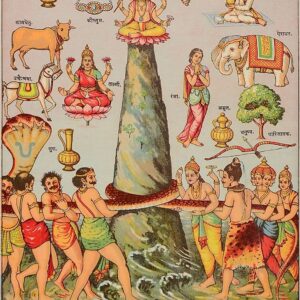Browse all Our Photography Tutorial Categories
Companies, Engines, Shop, Solution For Business Agency, Medical Health, Pharmacy, Fresh Grocery Store, Car rental, Product Designer, Digital Marketing Firm, Restaurant For Healthy Food, Real Estate, Movies, TV Shows, Universes, Comics, Games, Grow Business, The future of business agency, Ceramics Design, Electric Charging Station, Travel, Photography, DIESEL GENERATOR SHOP, Travelers Blog, Insurance Company, Digital Newspaper, Body Fit & Strong, Construction, Future To Your Investment, Coal Company, MUSIC Show, Furnitures Business Law, Power Department Electricity House, Shop Wardrobe, Watches For Lifetime, Travel, Car rental Grand Conference, Religion, Accountants, Creative Online Learning Platform, Cultural Program, Civilization..
A photographer (the Greek φῶς (phos), meaning “light”, and γραφή (graphê), meaning “drawing, writing”, together meaning “drawing with light”) is a person who uses a camera to make photographs. Duties and types of photographers
An amateur photographer takes snapshots for pleasure to remember events, places or friends with no intention of selling the images to others.
A professional photographer is likely to take photographs for a session and image purchase fee, by salary or through the display, resale or use of those photographs.
A professional photographer may be an employee, for example of a newspaper, or may contract to cover a particular planned event such as a wedding or graduation, or to illustrate an advertisement. Others, like fine art photographers, are freelancers, first making an image and then licensing or making printed copies of it for sale or display. Some workers, such as crime scene photographers, estate agents, journalists and scientists, make photographs as part of other work. Photographers who produce moving rather than still pictures are often called cinematographers, videographers or camera operators, depending on the commercial context.
The term professional may also imply preparation, for example, by academic study or apprenticeship by the photographer in pursuit of photographic skills. A hallmark of a professional is often that they invest in continuing education through associations. While there is no compulsory registration requirement for professional photographer status, operating a business requires having a business license in most cities and counties. Similarly, having commercial insurance is required by most venues if photographing a wedding or a public event. Photographers who operate a legitimate business can provide these items.
Photographers can be categorized based on the subjects they photograph.
Some photographers explore subjects typical of paintings such as landscape, still life, and portraiture. Other photographers specialize in subjects unique to photography, including sports photography, street photography, documentary photography, fashion photography, wedding photography, war photography, photojournalism, aviation photography and commercial photography. The type of work commissioned will have pricing associated with the image’s usage.A photographer (the Greek φῶς (phos), meaning “light”, and γραφή (graphê), meaning “drawing, writing”, together meaning “drawing with light”) is a person who uses a camera to make photographs. Duties and types of photographers An amateur photographer takes snapshots for pleasure to remember events, places or friends with no intention of selling the images to others. A professional photographer is likely to take photographs for a session and image purchase fee, by salary or through the display, resale or use of those photographs. A professional photographer may be an employee, for example of a newspaper, or may contract to cover a particular planned event such as a wedding or graduation, or to illustrate an advertisement. Others, like fine art photographers, are freelancers, first making an image and then licensing or making printed copies of it for sale or display. Some workers, such as crime scene photographers, estate agents, journalists and scientists, make photographs as part of other work. Photographers who produce moving rather than still pictures are often called cinematographers, videographers or camera operators, depending on the commercial context. The term professional may also imply preparation, for example, by academic study or apprenticeship by the photographer in pursuit of photographic skills. A hallmark of a professional is often that they invest in continuing education through associations. While there is no compulsory registration requirement for professional photographer status, operating a business requires having a business license in most cities and counties. Similarly, having commercial insurance is required by most venues if photographing a wedding or a public event. Photographers who operate a legitimate business can provide these items. Photographers can be categorized based on the subjects they photograph. Some photographers explore subjects typical of paintings such as landscape, still life, and portraiture. Other photographers specialize in subjects unique to photography, including sports photography, street photography, documentary photography, fashion photography, wedding photography, war photography, photojournalism, aviation photography and commercial photography. The type of work commissioned will have pricing associated with the image’s usage.













Reviews
There are no reviews yet